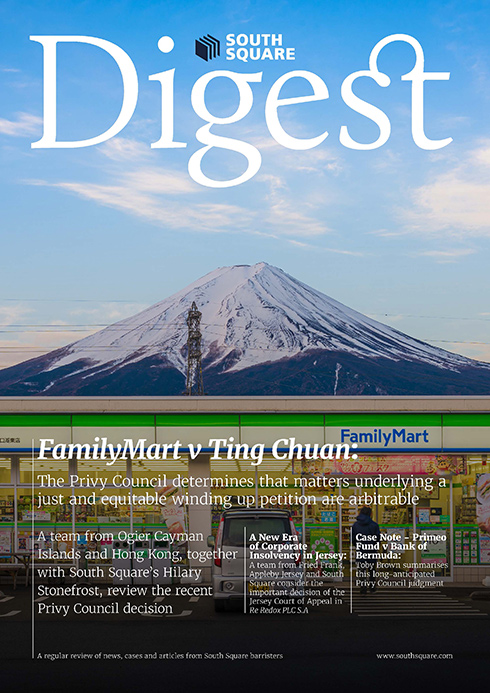Case C-168/20
EU administered pensions and bankruptcy in UK; exclusion of pension rights from the bankrupt’s estate
Joint Trustees in bankruptcy of M v Mrs M, MH, ILA and M
Mini-summary
On a preliminary reference from the High Court[1], the ECJ has held that Article 49 TFEU[2] (prohibiting restrictions on the freedom of establishment) precludes a provision such as s11 of the Welfare Reform and Pensions Act 1999 (“WRPA 1999”) which makes the automatic exclusion from the bankrupt’s estate of pension rights dependent on the requirement that at the time of bankruptcy the pension scheme be tax approved in that Member State where that requirement is imposed in a situation where an EU citizen who, prior to becoming bankruptcy moved to that Member State for the purpose of pursuing a self-employed activity there, has pension rights accrued under a pension scheme established and tax approved in his home Member State unless the restriction on freedom of establishment constituted by the national provision is justified by an overriding reason in the public interest and is appropriate for the attainment of the objective pursued.
John Briggs, Barrister, South Square
The practical implications of this case
The ECJ continued to have jurisdiction under Article 86(2) of the Withdrawal Agreement since the request for a preliminary ruling was made before the end of the transition period which ended on 31 December 2020.
Although the UK is no longer a Member of the EU, the ruling of the ECJ that the provisions of s 11 WRPA are indirectly discriminatory is still of significance in relation to cases where the bankruptcy proceedings were opened before the end of the transition period (Article 67.3 (c) of the Withdrawal Agreement applying EU Regulation 848/2015).
On a more general level, the decision raises the wider question whether it can be argued that s 11 WRPA 1999 is discriminatory and incompatible with Article 1 of the First Protocol (Protection of Property) and Article 14 (Prohibition of discrimination) of the European Convention on Human Rights as set out in Sch 1 of the Human Rights Act 1998.
The background
M was an Irish property developer who moved to London in 2011 following the crash in the Irish property market and at a time when he had very large personal liabilities. In 2002 by payment of a single premium of €6,161,256 he had established an occupational pension scheme through an Irish company in the form of an insurance policy taken out with ILA and governed by Irish law.
This pension policy was transferred in 2009 into another pension scheme set up by a new Irish company S Industries also governed by Irish law and approved as a retirement benefits scheme for the purposes of the Irish tax legislation. M was a director of S Industries until April 2012 and an employee until January 2011, shortly before he came to live in the UK where he rented offices and set up as a property and construction consultant.
In November 2012 M was declared bankrupt in the High Court in London on his own petition.
In November 2018 the Trustees in bankruptcy claimed that the benefits deriving from the pension policy vested in them because the pension rights were not registered with the UK tax authorities under s 153 of the Finance Act 2004 and so not an “approved pension arrangement” as defined by s 11(2) (a) of the WRPA 1999 the rights of which are excluded from the bankrupt’s estate by s 11(1).
In his defence M claimed that EU law principally Articles 21, 45 and 49 TFEU (the “freedoms of movement and establishment”) require that any rights accrued under the pension scheme be excluded from the bankrupt’s estate and that s 11 must be “read down” to give it a conforming interpretation to eliminate the discrimination.














